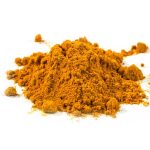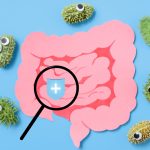What are triglycerides?
Triglyceride is the main type of fat transported by your body. The fat gets its name from its chemical structure. Triglycerides are a normal component in your bloodstream. After you eat, your body digests the fats in your food and releases triglycerides into your bloodstream. They are transported throughout your body to give you energy or to be stored as fat. Your liver also produces triglycerides and changes some into cholesterol. Your liver can change any source of excess calories into triglycerides.
What is a normal triglyceride level?
Triglyceride levels vary with age. They also depend on how recently you have eaten before the test. The measurements will be most accurate if you haven't eaten in the last 12 hours or so. Generally, an acceptable triglyceride level is 150 mg/dL or less. Triglycerides rarely reach extremely high levels, except in people with an inherited tendency toward high levels.
How are triglycerides associated with cholesterol?
When you eat, triglycerides combine with a protein in your blood to form what is called high-density and low-density lipoproteins. These lipoprotein particles contain cholesterol. For triglycerides made in your liver, the process is similar. Your liver gathers carbohydrates and protein left over from a meal and changes them to fat. This fat then combines with protein and cholesterol to form very low density lipoproteins, which are released into your bloodstream.
What are the risks of high triglyceride levels?
Recent studies are suggesting that an elevated triglyceride level probably is an independent risk factor for heart disease, even if your cholesterol is normal. Elevated triglyceride levels have also been associated with diabetes and pancreatitis (inflammation of the pancreas).
Often, the HDL-Cholesterol (“Good Cholesterol”) level will be low in people with high triglycerides. A low HDL level (below 35) is also an independent risk factor for heart disease.
What causes high triglyceride levels?
Elevated triglyceride levels may have several causes:
- Weight gain. Triglyceride levels usually increase as your weight increases.
- Excess calories, especially from sugar and alcohol. Alcohol increases your liver's production of triglycerides and reduces the amount of fat cleared from your blood.
- Age. Triglyceride levels steadily increase as you grow older.
- Medications. Certain drugs, such as birth control pills, steroids, and diuretics (water pills) can cause triglyceride levels to rise.
- Illness. Medical conditions associated with high triglyceride levels include diabetes, hypothyroidism, kidney disease, and liver disease.
- Heredity. Some forms of high triglycerides occur among members of the same families.
How is it diagnosed?
A simple blood test can diagnose high triglyceride levels. Your doctor will ask you not to eat for about 12 to 14 hours before your blood is taken. This allows the triglycerides from your food to be completely eliminated. Your doctor wants to know only the amount of triglycerides being made by your body, not what is produced by eating.
How is it treated?
Treatment for elevated triglyceride levels includes the following.
- Lose weight. Weight loss alone will usually lower your triglyceride levels.
- Exercise. Regular exercise makes weight loss quicker and easier and is essential in maintaining your lower weight.
- Eat less sugar and sugar-containing foods. Instead of sweetened fruit juices, use fresh unsweetened fruit or unsweetened fruit juice. Instead of putting sugar in your coffee, use an artificial sweetener.
- Drink less alcohol. Some people are very sensitive to alcohol's ability to increase the liver's production of triglycerides.
- Limit fat to less than 30% of your daily calories.
If these lifestyle changes don't lower your triglyceride levels, your doctor may prescribe a medication such as gemfibrozil (Lopid®), Tricor®, or nicotinic acid (Niaspan®, Niacin, and others). Gemfibrozil and Tricor® decrease the liver's production of triglycerides and clears triglycerides from your blood. They also help to reduce cholesterol. Niacin in large doses also helps reduce total cholesterol and triglyceride levels while raising the HDL-Cholesterol level. Check with your doctor before taking niacin if you have a liver disorder, gout, diabetes, ulcer, or a cardiac arrhythmia. Fish oil also has been found to reduce triglycerides. Two or three meals of fish such as salmon, or mackerel every week may help lower your triglyceride levels.
What else can be done to reduce my risk for coronary disease?
In addition to the above mentioned lifestyle changes, consider the following…
- A Nutritious Diet: Our goal is to reduce fat, intake and increase our intake of grains and fiber. Strive to take in five servings of fruits and vegetables each day and be sure to eat your oatmeal!
- Daily Aspirin: A low 81 mg. dose works just as well as higher doses.
- A Multivitamin / Mineral Supplement: A Centrum® or One-A-Day® is fine.
- Vitamin E: Try to take in 400 units a day.









